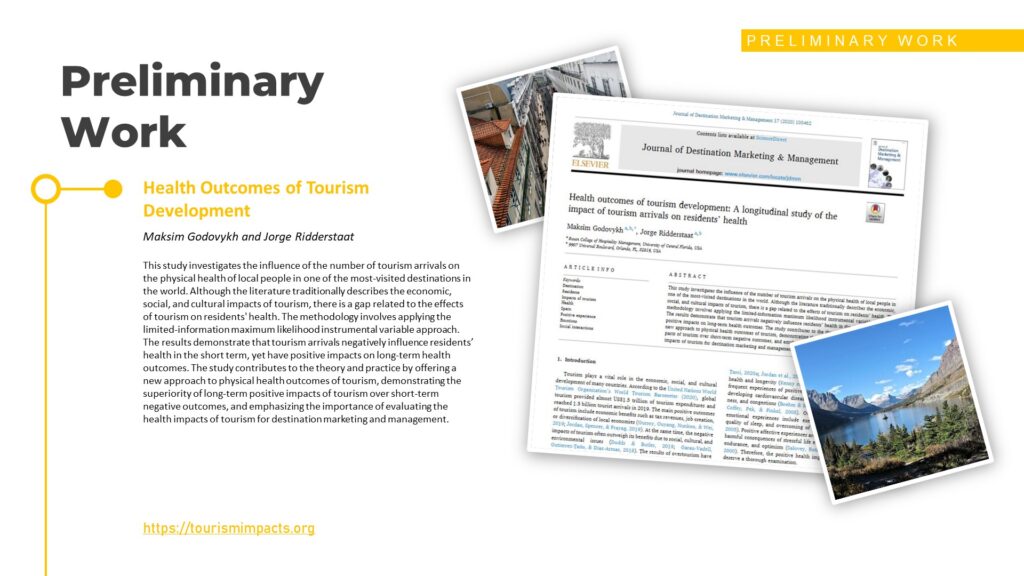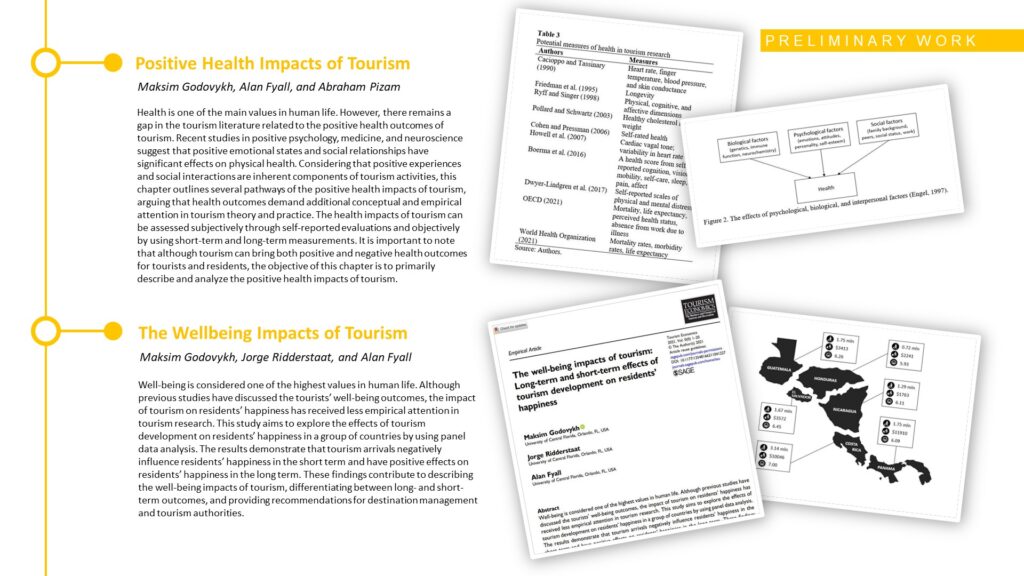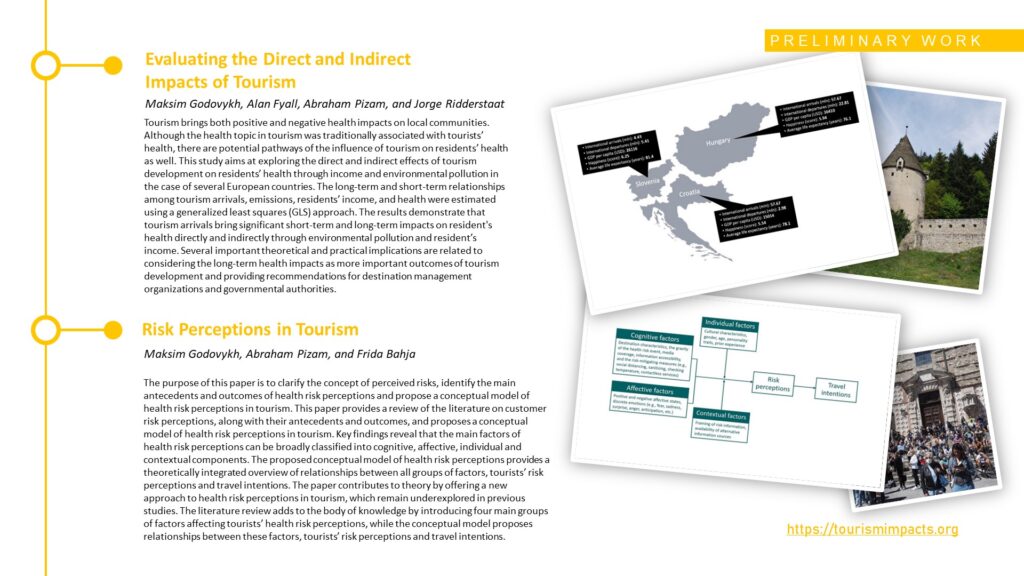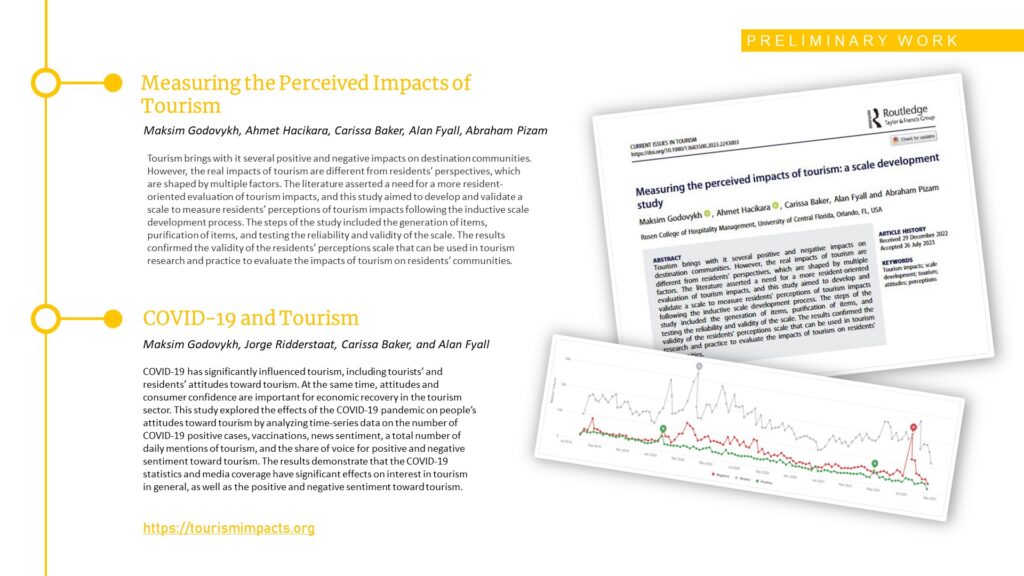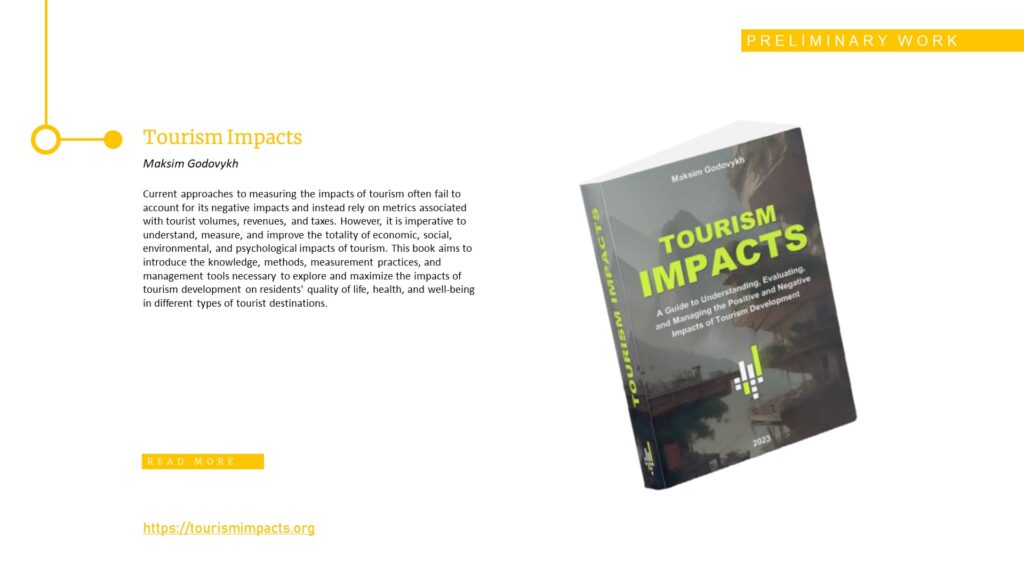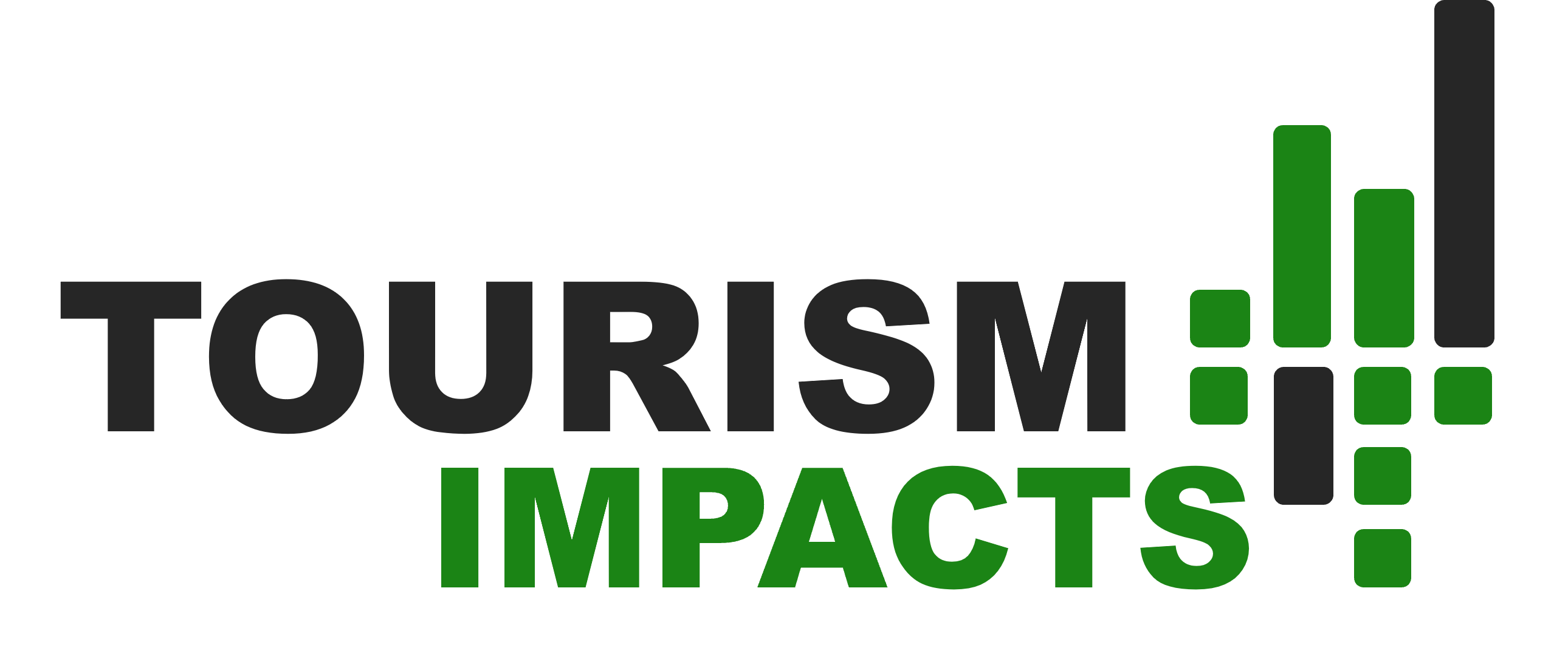
Introduction
Tourism is a significant driver of economic growth, providing substantial revenue, employment opportunities, and investments to local communities across the country. While many communities actively encourage tourism development to capitalize on these economic benefits, the surge in tourist activity often brings about negative social, cultural, environmental, and psychological consequences for destination communities. These adverse effects can severely impact residents’ quality of life, health, and well-being.
Current approaches to evaluating tourism impacts often overlook these negative consequences, focusing instead on metrics related to tourist volumes, revenues, and taxes. There is an urgent need for a more holistic, data-driven framework that assesses tourism’s effects on resident communities across social, economic, health, environmental, and psychological dimensions. The proposed project seeks to address this gap by advocating for a new research agenda that emphasizes the improvement of tourism’s impact on destination communities.
Objectives
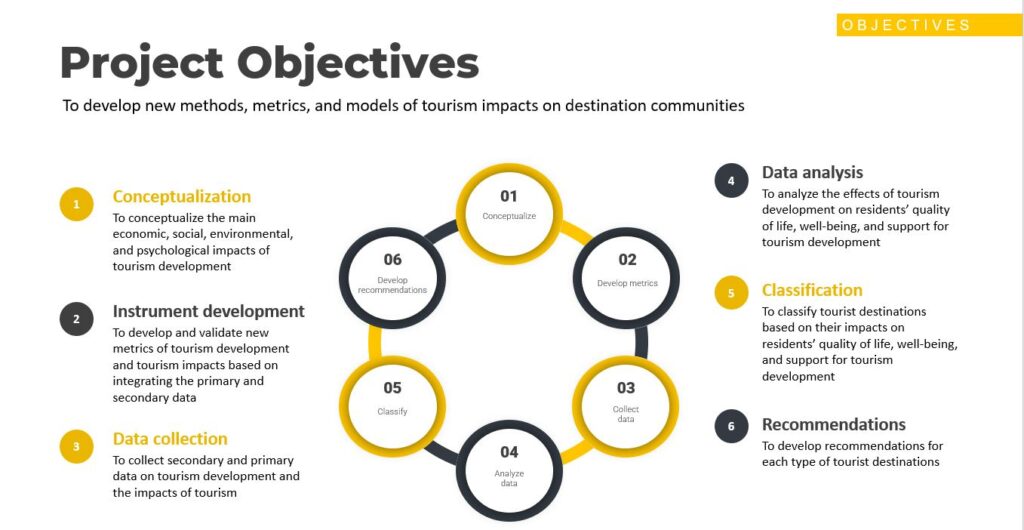
The project aims to push the boundaries of current tourism research by:
- Identifying the structure of destination communities and their key stakeholders.
- Developing new research instruments.
- Modeling the impacts of tourism on these communities.
By conceptualizing, operationalizing, and analyzing these impacts, the project aims to shift the focus of destination research from merely increasing tourist numbers to enhancing the positive outcomes of tourism for local communities. The project is designed to be scalable and transferable to other destinations, thereby benefiting a wide range of communities globally.
Methodology
To achieve its objectives, the project will employ a multidisciplinary approach, integrating perspectives from fields such as tourism, destination management, economics, environmental biology, psychology, engineering, health research, and public affairs. The research will involve:
- Conceptualizing the impacts of tourism.
- Developing research instruments.
- Collecting and analyzing secondary and primary data.
- Classifying tourism destinations.
- Developing recommendations.
- Disseminating project results widely.
- Measuring project success.
Community Engagement
A central goal of the proposed project is to create a comprehensive model of the impacts of tourism development on destination communities, incorporating both technological and social science dimensions. The project will address key research questions related to the needs and challenges faced by these communities, develop appropriate data-driven metrics for assessing tourism impacts, and explore the relationship between tourism development and its effects on residents.
The project also places a strong emphasis on community engagement, involving key stakeholders from destination communities—including residents, destination management organizations, businesses, and government entities—in the research process. Workshops and collaborative meetings will ensure that the project is grounded in the real concerns and aspirations of these communities, fostering a bottom-up approach to sustainable tourism development.
Scalability and Transferability
The project’s outcomes have the potential to be applied to over 150,000 tourist destinations worldwide (TripAdvisor, 2023). By identifying the needs and challenges of these communities, developing data-driven metrics, and creating a framework for analyzing and improving tourism impacts, the project aims to benefit a global audience. Additionally, through partnerships with key stakeholders and the development of educational resources, the project will ensure the long-term sustainability and transferability of its results.
Intellectual Merit
The project will contribute to intellectual merit by advancing knowledge in several key areas:
- Identifying the structure of destination communities and their key stakeholders.
- Developing new research instruments to assess residents’ perceptions of tourism impacts.
- Modeling these impacts and analyzing the effects of various factors on residents’ perceptions and well-being.
- Creating a new classification of tourism destinations based on their effects on local communities.
- Developing experimental scenarios and interventions applicable to future research.
Broader Impacts
The project’s broader impacts include:
- Improving residents’ quality of life, health, and well-being in tourist destinations worldwide by applying the project’s findings.
- Transforming existing tourism statistical indicators with data-driven metrics and visualization tools, leading to significant changes in tourism management strategies.
- Preparing a new generation of sustainable tourism professionals through partnerships, educational content, and training programs.
- Achieving long-term sustainability through strong support from governmental authorities, nonprofit organizations, and local community decision-makers.
Through wide dissemination, partnerships with global organizations, and the creation of educational content, the project is well-positioned to achieve its goals and make a lasting impact on the field of tourism.
Preliminary Work
